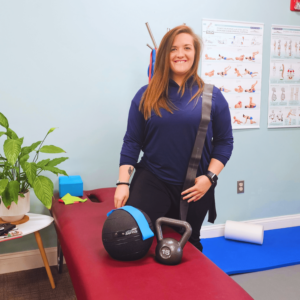The diagnosis of medical conditions is a complex and difficult art. But growing research tells us that many chronic illnesses have something in common – inflammation.
Inflammation is a normal response when you are sick or injured. It happens when your immune system attacks and neutralizes viruses, bacteria and toxins. It shows up as acute or chronic swelling when you are repairing injuries like sprains, strains, or fractures.
Your body uses inflammation as part of the healing process. Acute inflammation brings swelling, dilated blood vessels, pain, heat and redness. But once the cause of the inflammation passes, your body settles down, you heal and move forward. When this happens as it should, there is generally no long-lasting effect.
Chronic inflammation is different. It can happen when the threat or injury is not completely eliminated. More often it happens due to chronic toxic overload, inadequate nutrition, chronic stress, or repetitive injury. Over time it can even develop into harmful patterns that lead to life-threatening diseases like colitis, cardiovascular disease, even neurologic disease like Alzheimer’s or Parkinsons.
Here are seven subtle signs of inflammation, to alert you that there may be an underlying health problem brewing:
- Chronic Fatigue/Tiredness – People who are always tired often have inflammatory and pro-inflammatory chemicals in their bloodstream. Loss or lack of deep sleep itself can increase inflammation. If you frequently feel tired, the simplest solution is just to get more sleep – if you get seven or eight hours every night and still feel tired, it may be a sign of chronic inflammation. Trouble falling or staying asleep may itself be a sign of something causing inflammation
- Joint Pain – Joint pain can be caused by injury or repetitive stress on muscles and ligaments, or it can point out a primary site of inflammation, like in rheumatoid arthritis. In RA and other related conditions, the immune system releases inflammatory substances that attack the joints, which leads to symptoms like pain, swelling and discoloration. If your joints hurt even if you haven’t done anything to injure yourself, it may be a sign of chronic inflammation.
- Digestive Issues – Crohn’s Disease, food allergies and irritable bowel syndrome are symptoms of inflammation in the digestive tract. These people may experience diarrhea, cramping, stomach pain or gassiness and bloating. If this happens occasionally after an indulgent meal and it passes quickly, then it’s usually no problem. If it happens repeatedly, it may be a sign of chronic inflammation. In these cases it is essential to find out what the triggers are – food sensitivities, medications, or stress can all be factors.
- Red Itchy Skin – Dermatitis and eczema is inflammation of the skin. It can happen occasionally from harsh rubbing or a reaction to chemicals or noxious plants. In this case, it should pass within a few days and leave no residual problems. If your skin is chronically red, itchy, scaly or patchy, it may be a sign of chronic inflammation. These types of skin conditions often correlate with gut inflammation, so treating the surface with medications will not help in the long term.
- Coughing or Cold Symptoms – Symptoms like coughing, sneezing, runny or stuffy nose, watery eyes, wheezing or chest pain are related to inflammation of the lungs or sinuses. This may take the form of bronchitis, allergies or ongoing flu-like aches and pains. Recall that acute inflammation is necessary for getting rid of viruses and bacteria. Acute illnesses like this should resolve in a week or two with proper rest and nutrition. If it persists, it may be a sign of chronic inflammation.
- Belly Fat – Many people don’t realize that the fat cells around the abdomen put out chemicals that increase inflammation. Obesity is both a cause and an effect of heart disease, diabetes, cancer and other metabolic disturbances. Many studies have demonstrated the relationship between belly fat and chronic inflammation.
- Depression – People who are anxious or stressed may become depressed, and while this is natural in times of great adversity, if it is allowed to continue for too long it can either cause or be caused by inflammation. Ongoing distress creates this vicious cycle, where inflammation causes more depression, which causes more inflammation, and so on.
There are many ways to reduce chronic inflammation,
- weight reduction to reduce inflammatory abdominal fat
- Sleep to improve immune function and promote healing
- Exercise to strengthen and stabilize joints
- Meditation to reduce stress
- Reduce sugar and alcohol intake
- Get food allergies and sensitivities properly diagnosed so you can eliminate them
- Chiropractic care to help improve mobility, strength, and your ability to do all of the above!
If you feel you or any of your loved ones have any of the signs mentioned above, give us a call so we can help you get the help you need to move better, heal better, and feel better!





